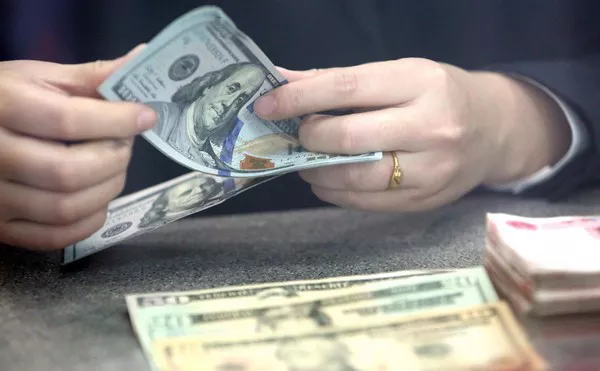In today’s dynamic global economy, the value of currencies plays a pivotal role in shaping international trade, investment strategies, and economic dynamics. One such currency, the United States Dollar (USD), often takes center stage due to its widespread use as a global reserve currency. However, there are times when the USD weakens, and this shift in its value can have profound consequences. In this comprehensive article, we will explore the multifaceted impact of a weak dollar and identify key players who stand to benefit from this phenomenon.
1. Export-Driven Industries Rejoice
The weakening of the USD can offer a lifeline to export-driven industries, such as manufacturing and agriculture, providing them with a competitive edge in the international market.
When the USD depreciates, foreign buyers find American goods and services more affordable, resulting in increased demand for U.S. exports. Manufacturers, for example, can see a surge in overseas sales, leading to higher production levels, job creation, and economic growth. This phenomenon bolsters the manufacturing sector and narrows trade deficits, ultimately benefiting the broader economy.
2. Multinational Corporations Exploit Currency Differentials
Multinational corporations strategically capitalize on a weak dollar by leveraging currency differentials to enhance profitability.
When the USD loses value, companies with a global footprint often reap substantial rewards. These corporations generate significant revenue from international sales and can convert their foreign earnings into a stronger home currency, yielding increased profits. Additionally, they may opt to reinvest these profits in expanding their international operations, further solidifying their market presence.
3. Tourism Flourishes Amidst Favorable Exchange Rates
Tourism enjoys a boost as a weak dollar entices foreign tourists to explore the United States, contributing to the growth of the hospitality and tourism industry.
When the dollar weakens, the cost of traveling to the U.S. becomes more attractive for international tourists. Favorable exchange rates translate to more affordable vacations, making destinations within the United States more appealing. As a result, the tourism sector experiences an uptick in bookings, hotel occupancy rates, and spending at local businesses.
4. Commodity Exporters Reap the Rewards
Commodity exporters, such as oil-producing nations and agricultural exporters, experience an increase in revenue due to higher commodity prices in a weak dollar environment.
The value of commodities, like oil, gold, and agricultural products, often rises when the USD declines. This surge in prices can significantly benefit countries that rely heavily on commodity exports. They receive more revenue for the same quantity of goods, which can be instrumental in improving their trade balances and supporting their economies.
5. Debtors Find Relief in Reduced Debt Burdens
Individuals, businesses, and even governments with USD-denominated debts can breathe a sigh of relief when the dollar weakens, as it effectively reduces their debt burdens.
A weak dollar means that the real value of outstanding debts decreases when converted to other currencies. This offers debtors greater financial flexibility, as they face lower interest costs and more manageable repayment obligations. Businesses can allocate funds to growth initiatives, while individuals may experience reduced financial stress.
6. Investors Seek Safe Havens
Global investors often flock to safe-haven assets like gold and foreign currencies when the USD loses value, seeking to protect their portfolios from currency depreciation.
A declining dollar can spark investor concerns about its long-term stability. In response, many investors diversify their portfolios by allocating funds to assets like gold, which historically appreciates during currency depreciation. Additionally, they may invest in foreign currencies or assets in countries with stronger currencies to mitigate risks associated with the weakening dollar.
In conclusion, a weak dollar is a multifaceted economic phenomenon that impacts various sectors of the global economy. From export-driven industries and multinational corporations to tourism, commodity exporters, debtors, and investors, different stakeholders benefit in distinct ways. Understanding the implications of a declining dollar is crucial for making informed decisions in today’s interconnected world.
As the global economic landscape continues to evolve, staying attuned to currency trends and their effects remains paramount for individuals and entities alike.
Related Topics:
What Does It Mean to Buy EUR/USD? Forex Trading & the Global Market
What Does USD Stand for in Money? the United States Dollar & its Significance
Analyst: USD/JPY Drop Won’t Last Long



























